Photo
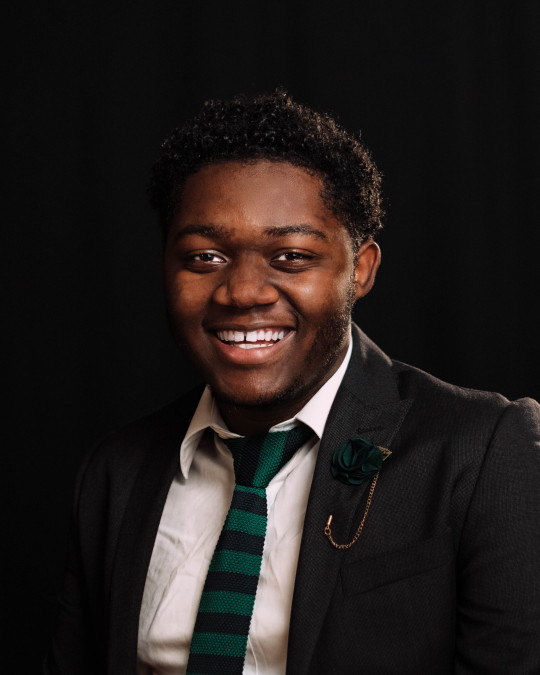
My name is Kemar Clarke. I am a third year student at Northern Caribbean University (NCU). I am currently studying Criminal Justice with an emphasis in law. In the future I aspire to become a Millitary lawyer.
This blog was created so I could help educate others and divulge in areas not often look at or talk about. Every citizen should know their rights to properly peruse their surroundings and know what not to and what would happen. It is imperative that we pay keen attention to “Knowing our Rights.”
I hope this series of blogs actually change the mindsets of many and educate those who did not know. No one is too old or too young to learn, grab these blogs with both hands and know your rights!!!!
0 notes
Text
Police Officer Expectations and Duties
Qualities of a Police Officer
HUMANITY We respect life and liberty. We are sensitive and inclusive, treating everyone with dignity and compassion.
INTEGRITY We are guided by the principles of justice. We employ the highest ethical standard, we demand accountability, consistency, fairness and honesty in the performance of our duties.
PROFESSIONALISM We take pride in our department. We are committed to excellence in our profession, and we maintain the highest standard of education in our field.
COURAGE Maintain a mental and moral strength to resist opposition and fairness of mind. Always stand by your fellow officers in the face of danger or extreme difficulty. Position duties are inclusive of all required tasks. Employees perform other related work as required.
Duties of a Police Officer
Protects life and property through the enforcement of laws & regulations; Proactively patrols assigned areas
Responds to calls for police service
Conducts preliminary & follow-up criminal and traffic investigations
Conducts interviews
Prepares written reports and field notes of investigations and patrol activities
Arrest and processes criminals
Testifies in court
Emergency duties required during adverse weather conditions
Ability to exercise judgment in determining when to use force and to what degree
Operate a law enforcement vehicle under emergency conditions day or night
Comprehending legal documents including citations, affidavits, warrants and other documents.
Commanding emergency personnel at accident emergencies and disasters
Takes an active role in Community Oriented Policing on campus
Self initiate traffic and/or criminal investigations.
0 notes
Text
Children need to be taught more about their human rights
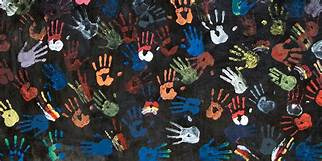
Many children have an innate sense of equality, fairness and justice and know how these concepts relate to their day-to-day lives. A lot of children also have the confidence to voice their opinions when they feel a lack of justice. But unfortunately, this is not always that case – especially for children whose personal rights are violated and who face mistreatment, often behind closed doors.
A recent report from the Office of the Children’s Commissioner estimates that 2.3 million children in England are living with risk because of a vulnerable family background. This includes children in the care system and children known to have experienced personal harm as well as those living in families where there is a high likelihood of harm.
Worryingly, an estimated 829,000 of these children are not known to social services or to children’s mental health services so are not receiving any support. Added to this, since the beginning of the COVID-19 pandemic, rates of domestic abuse have increased, meaning even more children may be living in homes where they are at risk of witnessing, or being on the receiving end of, violent behavior.
Children need to know how to get help when they feel at risk. They also need to understand how rights apply to them and their lives – and while a limited amount of this is done in schools, it currently doesn’t go far enough.
Children’s rights
Children’s rights are a subset of human rights. The United Nations Convention on the Rights of the Child sets out the rights that all children worldwide should have access to and is one of the most widely adopted international treaties of all time.
In England, specific teaching about human rights is included in Relationships Education for primary age pupils and in Relationships and Sex Education for secondary age pupils. Both primary and secondary pupils also learn about human rights in Health Education and in Citizenship education.
As part of these subjects, in primary schools, aspects relating to rights education includes pupils learning to recognize if relationships make them feel unhappy, unsafe or uncomfortable. Pupils also learn how to report any concerns or abuse and where they can get help.
https://theconversation.com/why-children-need-to-be-taught-more-about-their-human-rights-139431
0 notes
Text
Organizations that can help with Human Rights in societies
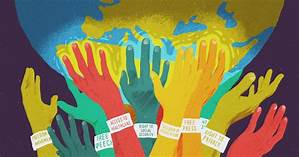
Amnesty International
Amnesty International is a global movement of more than seven million people who are independent of any type of political ideology, religion or economic interest and who take injustice personally. The movement campaigns for the world in which human rights are enjoyed by all.
The core activities of Amnesty International are research, advocacy and lobbying and campaigns and action. The organization employs experts who do accurate and facts-based research into human rights violations by governments and other actors. This analysis is, then, used to influence and press governments and decision-makers to undertake the necessary steps to stop or prevent human rights violations. The organization also employs the methods of campaigns and advocacy through petitions, letters and protests to call for action. In this way, the Amnesty International covers a big spectrum of human rights from seeking the release of political prisoners to protecting sexual and reproductive rights.
Human Rights Watch
Human Rights Watch is an international human rights organization that investigates and reports on abuses of human rights around the world. Currently, it employs around 450 people, mostly country-based experts, lawyers, journalists, and human rights workers who work to protect those at right.
The organization works with and advocates towards governments, businesses and armed groups, forcing them to change their policies and laws. To stay independent, Human Rights Watch refuses government and corporate funding. Researchers, who work directly on the field, uncover facts about human rights abuses. These facts are shared with millions of people through social media every day to gain global reach. The scope of the work of the Human Rights Watch is wide and the organization is highly committed to reaching justice, dignity, compassion and equality.
Civil Rights Defender
Civil Rights Defenders was established in 1982 in Sweden as an independent expert organization, with the mission to defend civil and political rights of people and empower human rights defenders at risk around the world. The organization is currently active in some of the most repressive regions in the world and collaborates with 200 local partners while focusing on innovation and sustainable change.
The organization uses advocacy, litigation, and public campaigns to advance people’s rights globally. Through advocacy, the Civil Rights Defenders provides expertise and support to human rights defenders while holding those in power accountable for their actions. The organization also actively works on improving people’s access to justice and freedom through increased respect for their civil and political rights.
Anti-Slavery International
Anti-Slavery International is an international organization committed to eliminating all forms of slavery and similar practices. It is one of the oldest human rights-based organizations in the world that bases its work on the UN treaties against slavery to influence decision-makers and inspire global change.
The organization holds consultative status with the UN Economic and Social Council, as well as observer statutes at the International Labor Organization. It uses its status to raise awareness and campaign against bonded labor, descent-based slavery, forced labor, forced marriage, the worst forms of child labor, the exploitation of migrant workers in conditions amounting to slavery and human trafficking. It partners with local organizations in the field to understand the local contexts and facilitates access to education, justice and compensation for people freed from slavery.
Global Rights
Global Rights is an international human rights non-governmental organization that was established in 1978 in Washington. In 2014, the organization moved its seat to Nigeria and currently works in partnership with local activists in Africa, Asia and Latin America to build the grass root movements that promote and protect the rights of marginalized populations.
The organization works on building capacities of underserved communities and builds platforms for participatory governance. It uses teaching and trains other organizations and coalitions to document and expose human rights abuses, advocate for legal and policy reforms and provide legal services to those in need. The Global Rights mostly focuses on working on cross-cutting issues such as access to justice, women’s rights, security of human rights and natural resource governance. The focal points of all organization’s programmes are women’s rights, access to remedies and disabilities issues.
0 notes
Text
5 Reasons Why Human Rights Are Important
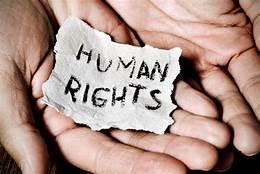
1: Human rights ensure people have basic needs met
Everyone needs access to medicine, food and water, clothes, and shelter. By including these in a person’s basic human rights, everyone has a baseline level of dignity. Unfortunately, there are still millions of people out there who don’t have these necessities, but saying it’s a matter of human rights allows activists and others to work towards getting those for everyone.
2: Human rights protect vulnerable groups from abuse
The Declaration of Human Rights was created largely because of the Holocaust and the horrors of WII. During that time in history, the most vulnerable in society were targeted along with the Jewish population, including those with disabilities and LGBT. Organizations concerned with human rights focus on members of society most vulnerable to abuse from powerholders, instead of ignoring them.
3: Human rights allow people to stand up to societal corruption
The concept of human rights allows people to speak up when they experience abuse and corruption. This is why specific rights like the right to assemble are so crucial because no society is perfect. The concept of human rights empowers people and tells them that they deserve dignity from society, whether it’s the government or their work environment. When they don’t receive it, they can stand up.
4: Human rights encourage freedom of speech and expression
While similar to what you just read above, being able to speak freely without fear of brutal reprisal is more expansive. It encompasses ideas and forms of expression that not everybody will like or agree with, but no one should ever feel like they are going to be in danger from their government because of what they think. It goes both ways, too, and protects people who want to debate or argue with certain ideas expressed in their society.
5: Human rights give people the freedom to practice their religion (or not practice any)
Religious violence and oppression occur over and over again all across history, from the Crusades to the Holocaust to modern terrorism in the name of religion. Human rights acknowledges the importance of a person’s religion and spiritual beliefs, and lets them practice in peace. The freedom to not hold to a religion is also a human right.
0 notes
Text
Rights as a NCU student
STUDENTS’ RIGHTS Students’ Rights and Freedoms Northern Caribbean University students are members of the academic community. As members of the NCU community, students are subject to special obligations and are to remember that, in this academic community, integrity, and the exercise of appropriate restraint and respect for the opinions and feelings of others are crucial. Behavior that does not reflect the ethos of the university could reflect negatively on students. Students’ Right to Enquire A student who wishes to explore matters regarding university policies and procedures that affect personal life, or concerns of general interest, may address such to the appropriate administrator or committee. If the student is unsuccessful in discussing the matter with the appropriate authority, a formal letter may be submitted to the Vice-President for Student Services who has the option of:
1. Contacting the appropriate administrator or faculty member to make an appointment for the student to discuss the matter personally.
2. Arranging with the student for a personal hearing of the issues.
3. Referring the matter to the Arbitration Panel or the Administrative Council for appropriate action. Students’ Right of Appeal When the student takes issue with an administrative decision, policy or regulation, there are appropriate ways to address such matters.
Actions are considered inappropriate when they promote sabotage, strikes, or undermine administrative policies. Right of Appeal - Matters of public interest for student body Where a student wishes to make representation on a point affecting all or a portion of the student body actions may be considered appropriate when the representatives of the student body present recommendations with adequate documentation to the Vice-President for Student Services.
The Vice-President will discuss the matter with the United Student Movement and will then:
46 a. Attempt to work with the Arbitration Panel towards a satisfactory solution of the problem.
b. Refer the matter and/or recommendations to the Administrative Council for resolution in the best way possible. The decision taken should be accepted as final.
Channels for student complaint, Personal Where a student believes that his/her academic or personal rights have been violated by another student, NCU worker or a third party connected to the institution , the following is the process to be followed;
a) The student should speak personally with a faculty or staff member connected to the matter
b) The faculty member should respond and seek an amicable resolution within seven (7) working days of the complaint.
c) If (b) does not result in an acceptable resolution the student may resubmit his complaint in writing to the same faculty or staff member, one (1) working day after the deadline for the faculty member’s original response referred to in (b)
. d) If (c) does not result in an acceptable resolution within seven (7) working days of the written complaint being received by the faculty member, the student may submit his or her complaint in writing to the Department Chairperson or the Dean of the College or School.
e) The Department Chairperson or the Dean shall respond and seek an amicable and fair resolution within twenty one (21) days of the written complaint made to them.
f) If (e) does not result in a reasonable resolution the student shall submit a complaint in writing to the Office of the Vice President of Student Services.
g) The student may appeal to the Cabinet after all the above channels have been explored without reaching a satisfactory solution.
h) Where the Cabinet is not able to reach a reasonable solution, the Cabinet shall make a recommendation to the Administrative Council within sixty (60) days of having received the said student’s complaint. a. If the student is of the opinion that the matter has not been adequately addressed by the appeals process, he may enter discussions with the Ombudsman.
i) All correspondences concerning the student’s right of appeal must be copied to the Office of the Vice President of Student Services.
Reference:
https://ncu.edu.jm/Student_Guide.pdf
1 note
·
View note
Text
Agency that can help persons when rights have been breached
One agencies/organizations that can help when persons rights have breach is counter Terrorism Organize branch which is a branch under the Jamaica Constabulary Force. This branch focusses on a lot of terrorisms and organized crimes, but specifically i am going to talk about Haman Trafficking.
Who Is a Human Trafficking Victim?
Human trafficking is a form of modern-day slavery in which victims are subjected to force, fraud or coercion for the purpose of commercial sex, debt bondage, or involuntary labor. Victims of human trafficking can be young children, teenagers, men and women. They can be U.S. citizens, Lawful Permanent Residents (LPRs) or foreign nationals, and they can be found in urban, suburban, and rural areas. Minors (under the age of 18) who are induced to perform commercial sex acts are victims of trafficking, regardless of whether their traffickers used force, fraud, or coercion.
A victim could be a man who does not speak English who is suspiciously injured “on the job” and shows signs of old bruising. A victim could be an abused woman who doesn’t know what city she is in when brought to the emergency room, and who is accompanied by a controlling companion who insists on speaking for her. A victim could be a fearful individual who quietly slips in and out of a local church on Sunday morning, or a child who lives in the neighborhood, yet doesn’t go to school or play outside.
General Clues to Help Identify Victims of Human Trafficking
Human trafficking may occur in the following situations:
Prostitution and escort services;
Pornography, stripping, or exotic dancing;
Massage parlors;
Sexual services publicized on the Internet or in newspapers;
Agricultural or ranch work;
Factory work or sweatshops;
Businesses like hotels, nail salons or home-cleaning services;
Domestic labor (cleaning, childcare, eldercare, etc. within a home);
Restaurants, bars, or cantinas; or
Begging, street peddling, or door-to-door sales.
Victims of human trafficking may exhibit any of the following:
Evidence of being controlled either physically or psychologically;
Inability to leave home or place of work;
Inability to speak for oneself or share one’s own information;
Information is provided by someone accompanying the individual;
Loss of control of one’s own identification documents (ID or passport);
Have few or no personal possessions;
Owe a large debt that the individual is unable to pay off; or
Loss of sense of time or space, not knowing where they are or what city or state they are in.
The Mindset of a Trafficking Victim
A human trafficking victim may develop a mindset of fear, distrust, denial, and conflicting loyalties. Foreign victims of trafficking are often fearful of being deported or jailed and, therefore, they may distrust authority figures, particularly law enforcement and government officials. Similarly, traffickers may convince sex trafficking victims who are U.S. citizens or LPRs that, if they report their traffickers to the police, the police will jail the victim for prostitution while the traffickers, pimps, or johns will go free. Many victims of both sex and labor trafficking fear that if they escape their servitude and initiate investigations against their trafficker, the trafficker and his/her associates will harm the victims, the victims’ family members, or others.
Psychological and Behavioral Clues
Being able to recognize the psychological and emotional consequences of human trafficking can also be helpful in identifying victims. Victims often:
Develop general feelings of helplessness, shame, guilt, self-blame, and humiliation;
Suffer from shock and denial, or display symptoms of post-traumatic stress disorder, phobias, panic attacks, anxiety, and depression;
Suffer from sleep or eating disorders;
Become addicted to drugs and/or alcohol as a way to cope with or “escape” their situation, or as a method of control used by their traffickers;
Become emotionally numb, detached, and disassociated from the physical and psychological trauma and display “flat affect”; or
Experience “trauma bonding” with the trafficker, positively identifying with the trafficker and believing that, despite repeated abuse, the trafficker is a loving boyfriend, spouse, or parent.
Physical Effects of Human Trafficking
While not all victims of trafficking have physical indicators that aid identification, many victims suffer serious health issues, some of which may include the following:
Signs of physical abuse, such as bruises, broken bones, burns, and scarring;
Chronic back, visual, or hearing problems from work in agriculture, construction, or manufacturing;
Skin or respiratory problems caused by exposure to agricultural or other chemicals;
Infectious diseases, such as tuberculosis and hepatitis, which are spread in overcrowded, unsanitary environments with limited ventilation;
Untreated chronic illnesses, such as diabetes or cardiovascular disease; or
Reproductive health problems, including sexually transmitted diseases, urinary tract infections, pelvic pain and injuries from sexual assault, or forced abortions.
1 note
·
View note
Text
What are the expectations of a police officer when approaching a citizen/ non-citizen?
You’ve been stopped by the police in public
Your rights
You have the right to remain silent. For example, you do not have to answer any questions about where you are going, where you are traveling from, what you are doing, or where you live. If you wish to exercise your right to remain silent, say so out loud. (In some states, you may be required to provide your name if asked to identify yourself, and an officer may arrest you for refusing to do so.)
You do not have to consent to a search of yourself or your belongings, but police may pat down your clothing if they suspect a weapon. Note that refusing consent may not stop the officer from carrying out the search against your will, but making a timely objection before or during the search can help preserve your rights in any later legal proceeding.
If you are arrested by police, you have the right to a government-appointed lawyer if you cannot afford one.
You do not have to answer questions about where you were born, whether you are a U.S. citizen, or how you entered the country. (Separate rules apply at international borders and airports as well as for individuals on certain nonimmigrant visas, including tourists and business travelers.
NCU Campus Security can model this way of Human rights, derive from the inherent dignity of the human person Law enforcement. Officials shall at all times respect and obey the law Law enforcement officials shall at all times fulfil the duty imposed on them by law, by serving the community and by protecting all persons against illegal acts, consistent with the high degree of responsibility required by their profession. Enforce a three-point notification system, giving the detainee: notice of the reason for his or her detention (immediate); notice of charges (prompt); and notice of his or her rights (twice: concurrent with notification.
1 note
·
View note
Text
The responsibilities of citizens and the police
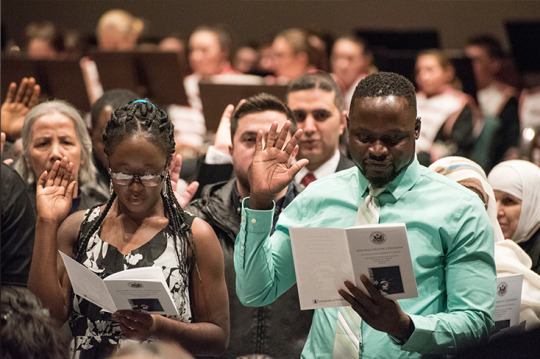
It is properly said that “the cost of flexibility is unceasing vigilance.” To be a great citizen, you've got to be watchful and fulfill your duties with the most extreme earnestness and trustworthiness. A citizen is described as an individual who may be a part of a specific country. The citizen of a nation has rights allowed to him by the structure. He/she too needs to take obligations and perform obligations expected of him/her. For e.g., the US Citizenship and Migration Administration has laid down duties of a citizen living within the Joined together States. Here is more on this topic. Citizen’s Responsibilities The data given underneath ought to make you mindful of the fundamental responsibilities of a citizen of a country. Obeying Laws It is one of the foremost vital duties of a citizen. Laws are made to preserve concordance within the society and to form beyond any doubt that the rights of all the citizens are regarded. The police and courts have the specialist to penalize those who resist the laws. Paying Taxes Paying assess.
The fundamental responsibilities or duties of citizens in different countries across the globe more or less remain the same. It is important that citizens perform their duties for the government to function properly. It is the collective responsibility of all citizens of a country to ensure smooth functioning of the government. Only the active participation of citizens allows to have an ‘Active Democracy’.
1 note
·
View note
Text
Knowing my rights as a Jamaican citizen
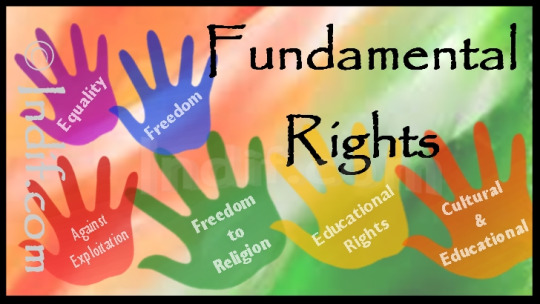
The influence of the Universal Declaration of Human Rights (UDHR) has been substantial. Its principles have been incorporated into constitutions of countries in the United Nations including Jamaica, making it constitutional law.
Rights that you are entitled to under the Constitution of Jamaica (Simplified Version):
The right to life, liberty and security of person except in the execution of the sentence of a court in respect of a criminal offense of which the person has been convicted
The right to freedom of thought, conscience, belief and observance of political doctrines
The right to freedom of expression
The right to seek, receive, distribute or disseminate information, opinions and ideas through any media
The right to peaceful assembly and association
The right to freedom of movement, that is to say, the right (i) of every citizen of Jamaica to enter Jamaica; and (ii) of every person lawfully in Jamaica, to move around freely throughout Jamaica, to reside in any part of Jamaica and to leave Jamaica
The right to equality before the law
The right to equitable and human treatment by any public authority in the exercise of any function
The right to freedom from discrimination on the ground of (i) being male or female (ii) race, place of origin, class, colour, religion, political opinions
The right to everyone to (i) protection from search of the person and property (ii) respect for protection of private and family life, and privacy of the home; and (iii) protection of other property and of communication;
The right of every child to be protected by virtue of being a minor, part of a family, society and the State
The right of every child who is a citizen of Jamaica, to public educational institution at the pre-primary and primary levels
The right to enjoy a healthy and productive environment free from the threat of injury or damage from environmental abuse and degradation of the ecological heritage
The right of every citizen of Jamaica to be registered to vote
The right of every citizen of Jamaica who is so registered, to vote in free and fair elections
The right of every citizen of Jamaica to be guaranteed a passport and not to be detained or deprived except by due process of the law
The right to protection from torture, or inhuman or degrading punishment or other treatment
The right to freedom of the person
The protection of property rights
The right to due process
The right to freedom of religion
2 notes
·
View notes